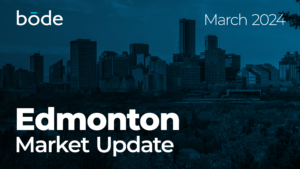Home Inspection Tips from Bōde and a Prō - Steven, Blue Seal Property Inspections
Bōde’s Prō Marketplace is there to help when buying, selling, or maintaining your home. Browse our offerings to connect with home inspectors, or other Prōs, for more information, pricing, or to schedule a service.
Getting a home inspection is often standard practice when purchasing a home, even in hot markets like now where we are seeing a lack of conditions being placed on offers. It is still important to know about any concerns, upgrades, the condition of items within the home, and even little quirks before taking over possession. This is the perfect chance to learn all about your new home, including not just finding out about what could be wrong but also learning how to maintain the condition of the home – and your home inspector is there to help! Don’t worry about asking too many questions or being a “high maintenance” client. Professional home inspector, Steven, with Blue Seal Property Inspections says he encourages homeowners to ask away to make sure they are informed on how to take the best care of their new home!
What questions should you ask during your Home Inspection
1. How does the home function?
Arguably the most important question to ask is overall how the home functions. This is how everything ties together to make the home a comfortable place to live. Many of the other questions will get into the nitty gritty of how each feature of the home works on their own and the condition they are in, but how these features work together is also important to understand. Your home inspector can take you through the basics of how the home is functioning.
2. How do specific items in the home work?
It’s a good idea to ask about using specific items in the home. This could be everything from functionality, to best use and maintenance of the item. For example, a natural gas fireplace may have a specific switch to turn it on. There may be a switch to help with circulation within the home. Better to ask these questions now, ensure everything is working properly and know how to use them. Avoid moving in, spending time figuring out how to use the features in your new home and testing what every switch does.
3. Where are the shut off valves?
Depending on the home you are purchasing the shut off valves could actually be difficult to find when you need them! A great question to ask your home inspector is where to locate important switches, such as: electric, furnace power, water.
4. What humidity levels should I keep the home at?
Humidity can be the cause of many issues. Ice inside windows, water damage, squeaky hardwood floors, and potentially even mold growth are a few examples. Your home inspection can tell you based on the type of home you have, and it’s features, what the optimal level to keep your humidity at is. This is a helpful question to ask that could mean avoiding costly mistakes down the road.
5. What type of electrical does the home have?
The electrical set up in a home is very important for a homeowner to be aware of for a variety of reasons. Among those are safety, future maintenance, and home insurance (some older homes may have wiring, for example knob-and-tube, that is not covered by home insurance). It’s a good idea to chat with your home inspector about what type of electrical wiring is in the home and if that may need an upgrade.
6. What can you tell me about the furnace?
The furnace is an exceptionally important component of any home. There are several questions you should consider asking after your home inspector has reviewed the furnace, including:
- What year was the furnace purchased/installed?
- Has the furnace been regularly serviced?
- Where is the furnace power switch?
7. How is the drainage around the exterior of the home?
Pooling water outside the home can be an indication of improper drainage and could lead to flooding and water damage within the home itself. Understanding how the water drains away from the home is important to reduce the likelihood of any water leaking into the home. In cities like Calgary and surrounding areas, it is also a good idea to find out if your home lies on a flood plain.
In addition to asking about the drainage system around the exterior of the home, it is also useful to ask about how to best winterize the outdoor faucets in preparation for cold weather. Home inspectors certainly have tips and tricks for best practices in order to keep your home in tip top condition.
8. Are there any concerns with the plumbing in the home? Any signs of water damage?
Evidence of previous water damage can be indicative of a problem. If you have a concern about signs of past water damage, you can always have a plumber give a second opinion, and/or ask the current homeowners what happened to cause that. The more information you have about what went wrong, the more prepared you can be for the future upkeep of the property.
9. What is the condition of the roof?
Roofs can be one of the most costly replacements in a home. A great question to ask your home inspector is about the condition of the roof, any concerns, and when they think it will likely need replacement. This will help you as a new homeowner prepare for the cost ahead of time rather than being caught off guard down the road. You can also ask about the condition of the eavestroughs and if they have been regularly maintained/cleaned. Depending on the market, and your negotiating power as a buyer, needing roof repair or replacement in the near future could be cause for negotiating further with the sellers in order to take this cost into consideration.
10. How well is the home insulated?
The insulation of the home will have an impact on your heating and cooling costs as a homeowner. It’s good to find out from your home inspector how the home is insulated (what type of insulation is used), and if there are any areas of the home that are not well insulated – for example, the attic should be well insulated to keep heat from escaping from the home. The type and quality of insulation can also effect mold and mildew growth, so it is important to be aware of.




